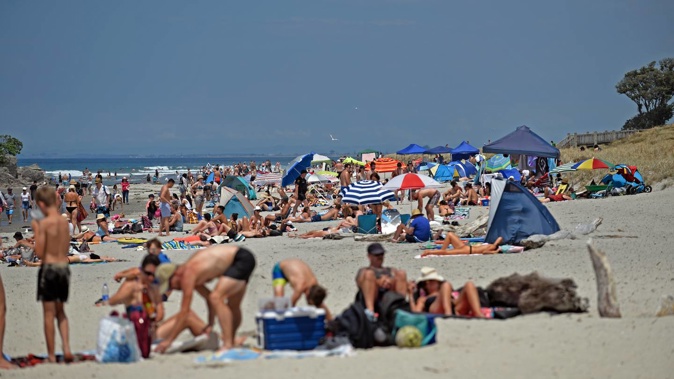
Holiday hotspots are gearing up for a mass exodus of city slickers as Covid-19 infections continue to soar.
Rural medical centres, which are already under pressure, are bracing for the influx but say they could reach breaking point if staff fall ill with the virus or cases skyrocket past an expected surge.
Experts are urging holidaymakers to take precautions to protect themselves and their families, in order to prevent health services from being overwhelmed.
The Ministry of Health has reported 42,740 new cases in the community over the past seven days, making it the worst week of infections in this third wave of the Omicron outbreak.
There are 581 people in hospital with Covid-19, including 15 in intensive care, as well as a further 64 deaths related to the virus.
Last year some vulnerable rural communities, like Ōpōtiki and Whanganui, asked Aucklanders to stay away after the city was plunged into a 107-day lockdown to protect the rest of New Zealand from the Delta variant.
Otago University epidemiologist Professor Michael Baker said this year marked the first summer where Covid-19 infections were prevalent across the whole country.
“People will need to be planning ahead more than in the past.”
People should consider outdoor areas for Christmas gatherings, opening windows for better ventilation, and doing rapid antigen tests before they meet, he said
Baker said Covid-19 was still a pandemic and was not yet a predictable endemic threat.
- Covid-19: Beware the Christmas Grinch
- Live: 42,740 cases, 64 deaths in past 7 days; Covid wave keeps climbing
“But this year is starting to show the pattern that we may be going to see in the medium term, with a succession of waves.”
/cloudfront-ap-southeast-2.images.arcpublishing.com/nzme/IQDBJIVA3NFHTA4G2RI6ZQFVAY.JPG)
Taupō rural hospital specialist Dr Jeremy Webber said even the usual annual influx of visitors puts a strain on the local health system.
“Now we’ve got superimposed on that the prediction of excessive case numbers over the Christmas period and that makes us quite concerned.”
Webber, who is also the clinical director of the rural health network Hauora Taiwhenua, said rural services were vulnerable.
“It’s only one or two staff members getting crook that makes the service potentially unviable in some areas.”
Wanaka Medical Centre general manager Michael James said staff have been under huge pressure, along with the rest of the health system, but they were as prepared as possible for the summer influx of holidaymakers.
“[However], any significant unpredicted increase in Covid-19 cases here will put pressure on scarce health resources which could lead to increases in patient waiting times.”
Thames-Coromandel District mayor Len Salt said the region looked forward to welcoming responsible visitors.
He urged people not to overdo the alcohol, or stay in the sun too long, and to be careful with new Christmas toys.
“We don’t want to overburden our already hard-working nurses, doctors, volunteer firefighters, surf lifesavers, police and coastguard – operating within limited health care facilities – to deal with avoidable injuries or illnesses.”
Te Whatu Ora Health New Zealand interim national medical director Dr Pete Watson said large numbers of people will be travelling for trips or seasonal work.
“We need to continue our good health behaviours to ensure we can not only protect ourselves and each other, but help reduce pressure on health providers, urgent care clinics and hospital emergency departments.”
If people tested positive for the virus while they were away from home and they were well enough to drive back home, they could do so, Watson said.
People could do this if they travelled via a private vehicle with only their immediate family or household members, he said.
Watson advised people to stock up on rapid antigen tests before they went on holiday so they were prepared.
Covid-19 Response Minister Ayesha Verrall said people eligible for their booster vaccine should also get one now.
Masks, rapid antigen tests, and vaccines could be accessed for free from thousands of locations, she said.
Verall announced the country’s Covid-19 settings will remain unchanged following a final review for the year.
“That includes the retention of 7-day mandatory isolation for positive cases, in order to break the chain of transmission and keep cases and hospitalisations at a manageable level.”
Green Party Covid-19 response spokesman Teanau Tuiono said the Government should be gearing up for a big summer communications campaign around the virus, rather than just urging individual caution.
“Whatever way you look at it, Covid will be a feature of many people’s summer break.”
Take your Radio, Podcasts and Music with you









